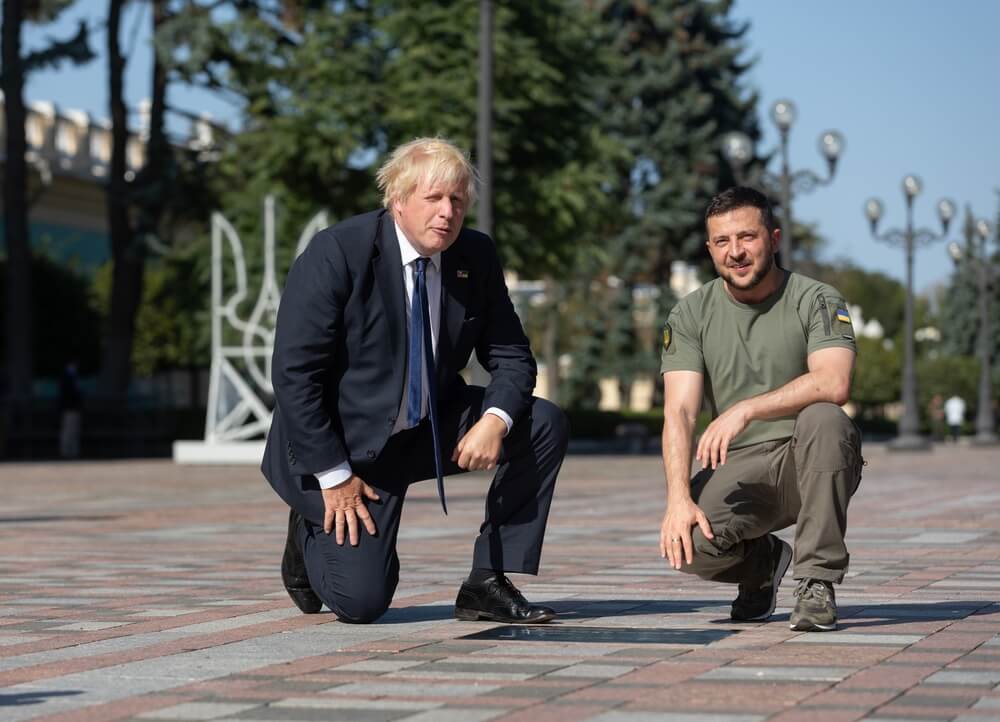UK governments and the British public have been consistently at the forefront of supporting the Ukrainian cause in the two and a half years since the Russian invasion.
Since British families first opened their homes to the first of around a quarter of a million refugees at the start of the war, successive governments have pressed the case with their allies for extending the size and scope of military aid to Kyiv.
The strategy suffered what may turn out to be a temporary setback last week, when a Washington meeting between President Joe Biden and Prime Minister Keir Starmer failed to give an anticipated go-ahead for Ukraine to use long-range Storm Shadow missiles against targets inside Russia.
Although a decision may merely be on hold pending discussions among a wider group of allies, the absence of an announcement left Starmer looking as if he had failed to overcome US caution about escalating the conflict.
The alternative is that, in the face of Russian threats, both Western leaders blinked.
Junior partner
As junior partners in the so-called ‘special relationship’ between the US and UK, British governments have a mixed record of attempting to restrain Washington on foreign policy issues or, alternatively, of cajoling the Americans into action.
Former Conservative prime minister John Major is credited with having prodded the US into establishing a no-fly zone in northern Iraq to protect its Kurdish population from Baghdad’s reprisals for an uprising that followed the 1991 Kuwait war.
Transatlantic relations became somewhat strained in 1999
Transatlantic relations even became somewhat strained in 1999 when Labour prime minister Tony Blair hawkishly tried to persuade a reluctant Bill Clinton into committing ground troops to NATO’s Kosovo war.
By contrast, Conservative prime minister David Cameron offered some cover for Barack Obama when he told the US president in 2013 that he could not join the US in military action against Syria because the UK parliament opposed it.
Obama subsequently failed to fulfil his ‘Red Line’ threat to punish Damascus for the use of chemical weapons in its civil war, a warning he had by then come to regret.
Vladimir Putin may have taken that as a signal of Western pusillanimity that emboldened him to invade Ukraine’s Crimea region in the following year.
Standing up to Putin
When it comes to supporting Ukraine now and standing up to Putin, British politicians have often sounded even more gung-ho than their American counterparts.
Foreign secretary David Lammy, dismissing Putin’s warning that Ukraine’s use of Western long-range missiles would put NATO at war with Russia, said at the weekend: “Putin is throwing dust up in the air. We cannot be thrown off course by an imperialist fascist.”
It is apparent from that and similar statements that the change of government has not dented the UK’s commitment to helping Ukraine confront the Russian aggression.
 It was Boris Johnson who set the tone for the UK and wider allied response to the 2022 Ukraine invasion when he became the first Western leader to subsequently visit Kyiv
It was Boris Johnson who set the tone for the UK and wider allied response to the 2022 Ukraine invasion when he became the first Western leader to subsequently visit Kyiv
Boris Johnson, prime minister at the start of the war, and other senior Conservatives have urged Starmer to grant permission for UK-made missiles to be used against Russia even without US agreement.
That begged the question whether they would risk such a breach with Washington if they were still in office. The Storm Shadow missiles are an Anglo-French weapon that includes American components.
It was Johnson who set the tone for the UK and wider allied response to the 2022 Ukraine invasion when he became the first Western leader to subsequently visit Kyiv in what was billed as a show of solidarity with the Ukrainian people.
In a version that gained some traction in the US, Johnson went on to sabotage a potential ceasefire by persuading Ukraine’s President Volodymyr Zelenskyy to hold firm. His defenders point out there was no deal on the table at the time.
The British public was to fall out of love with the disgraced Johnson on a range of other issues, but the popular view on the need to support Ukraine has remained broadly consistent.
Britain’s antipathy towards Russia
Although further from the frontline than their European counterparts, the British continue to support a tougher line than all but Russia’s nearest and potentially most threatened neighbours such as Estonia and Finland.
British attitudes are still influenced by the Salisbury poisonings of 2018 in which Russian agents botched an assassination attempt on former double agent Sergei Skripal. A British woman died in an operation that brought relations with Moscow to a post-Cold War low.
There are other factors that contribute to post-imperial Britain’s antipathy towards Russia, including a Churchillian self-regard about its readiness to stand up to bullies
There are other factors that contribute to post-imperial Britain’s antipathy towards Russia, including a Churchillian self-regard about its readiness to stand up to bullies.
That steadfastness might not survive if Putin escalates the conflict to the point that could provoke a wider European war.
Introducing a note of caution at the time of Starmer’s Washington visit, Kim Darroch, a former British ambassador to the US, warned that allowing Storm Shadow missiles to be fired into Russia was not without risk.
According to Darroch, who also served as a national security adviser: “If they are confident that he’s bluffing, then fine. But he’s bluffing until he isn’t.”